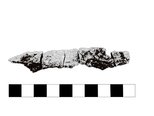GOTLAND ARCHAEOLOGICAL
FIELD SCHOOL
EXCAVATION 2024
The Viking Farm Project
Kräklingbo Kärrmans
Gotland is particularly rich in prehistoric remains. No place in Scandinavia has such a large amount of Viking objects found during the last 200 years, and no area has seen so many silver hoards as Gotland. More than 700 hundred hoards, containing in total more than 200,000 silver coins from the Arabic world, England, Germany and other countries, provide clear evidence of the importance of the island during the Viking Age. The island is also famous for its Bronze Age monuments: enormous cairns and ship-settings, as well as its Early Iron Age house foundations, so-called ‘giant’s graves’. Much of the archaeological research on the island has focused on settlements and harbour sites, but the field school now has turned its attention to a different aspect.
During summer 2024 we will start a new exciting project called The Viking Age Farm, in order to shed light on one of the aspects of Gotland history and landscape that still require an answer to many questions.
For an accurate description of the project, click here or on the pdf document.
Please see the FAQ sheet for additional information.
Here you can find the Syllabus for the Summer 2024 in PDF format.
DRAWING
For those with an artistic mind, there is oppurtunity to draw finds. Archaeological drawing is not like an ordinary sketch; you have to show the intricate parts of the artefact that a picture can't show.
3 week field course
The field course is carried out over 3 weeks, from the 24th of June 2024 until the 13th of July.
The course includes full board and transportation from the residence at Hemse to the excavation site. Field methods that will be applied at the excavation are:
- Basic excavation methods include the use of excavation tools, following the layers detecting and separating features, and sifting.
- Field drawings of plans, sections and features.
- Field mapping through the use of a theodolite.
- Find processing including cleaning, measuring, weighing, cataloguing and photographing finds.
- Photographing trenches and features.
- Filling in basic archaeological documentation forms.
The course is set at a beginner’s level and after the completion of the course, the student will be able to excavate a trench and possible features by following single contexts and stratigraphical layers together with documentation through measuring, drawing and writing.
The student will be able to distinguish from different archaeological finds and material, recognize changes in stratigraphy and clean, measure, weigh, photograph and catalogue finds. The student will also learn how to write basic archaeological documentation and reports, read academic texts and discuss theories and methods in a group environment. The student should also be able to theorize around the features and find materials as well as contextualize the excavation to the surrounding landscape and the time period.
Please note that we are not part of a university and can therefore not provide academic credits. Read more about academic credits and transcripts in the syllabus that you can find just here on the left.
Personal Research
Students will take on a research subject related to the excavation findings and present their results at the end of the course.
We also encourage students to use materials from the excavation or previous excavations for their own university studies (i.e. essay or thesis) with permission.
For information about costs and registration procedure, please visit our cooperating partner, Gotland Folk High School here.
Included in the course cost:
- Full board at Gotland Folk High School in Hemse in a single or double room and three meals per day on all days including weekends.
- Wifi is included together with laundry room and communal areas.
- All lectures, seminars and excursions are included.
- Gear for excavating (except clothes, shoes and personal equipment).
- Transport to and from the excavation site and the excursions.
Field school director
Dan Carlsson, PhD, Associate Professor
Field supervisor
Alice Rosa Brusin, M.A.
Follow the updatings of our excavation with our weekly summaries!
First week
Second week
